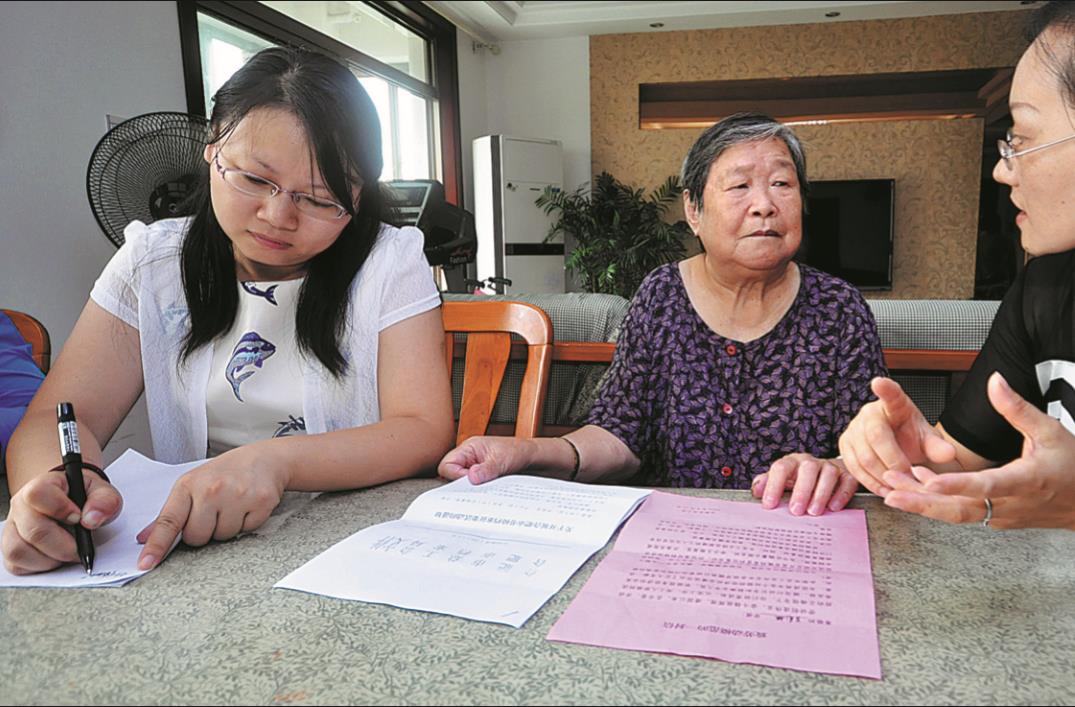Witness to history, woman's journey through New China

Nameless fisherman's daughter remembers night her life changed

Chinese people often quote a saying by Chairman Mao Zedong, "Study hard and make progress everyday".
The words of advice, which consist of eight Chinese characters, were written by the late leader on a notebook in Beijing shortly after Oct 1, 1951, the second anniversary of the People's Republic of China.
He then presented that notebook to Ma Maojie, who has been witness to the continuous progress the country has made under the leadership of the Communist Party of China.
Born into a fishing family in Wuwei county, East China's Anhui province in 1935, Ma is one of the 29 recipients of the July 1 Medal – the Party's highest honor – which is awarded to outstanding Party members. The medals were presented for the first time this year by President Xi Jinping, general secretary of the Communist Party of China Central Committee and chairman of the Central Military Commission.
Ma's road to glory began on April 20, 1949. That night, the People's Liberation Army launched the Yangtze River Crossing Campaign, a major offensive against the then-ruling Kuomintang during the war leading up to the founding of New China.
"I spent my first 14 years in extreme poverty like many other people, a wooden fishing boat was almost all my family owned," she said.
In January 1949, the PLA liberated Wuwei, which lies to the north of the Yangtze and Ma's family was given their first plot of farmland.
"The army also brought us grain, which made me very happy," Ma recalled.
Before the battle, she noticed that the PLA was recruiting residents to help with the campaign.
"She was very excited that villagers to the south of the river would also be liberated," said Ma's daughter, Liu Guanglin, who has heard the story many times.
When the battle began, Ma jumped into the family's boat with her older brother, even though she had not been recruited.
At first, the soldiers refused to let her come as they thought she was too young for the dangerous mission, but she insisted and persuaded them to let her stay by explaining that she was skilled at steering the boat, and was strong enough for the mission. The soldiers relented even though she was risking her life to help.
Ma remembers bullets and bombs from airplanes and positions on the opposite bank falling like rain.
Many people were wounded and died beside her.
In a recent visit to the riverside where the battle started, Ma told her children that she could still hear the guns and cannons, even now. She said that she felt no fear during the battle and the worn-out, patched jacket she was wearing at the time is now kept at the Anhui Museum.
- Reception held in Macao to welcome Chinese New Year
- China launches Pakistani satellite, two others
- Former deputy head of China Tobacco under investigation
- An Italian calling Shanghai home
- Education Ministry approves 12 new higher education institutions
- China's newborns rise in 2024, first time in years




































